You should never plug these 5 home appliances into an extension cord, caution electricians
Always plug these five appliances right into the wall
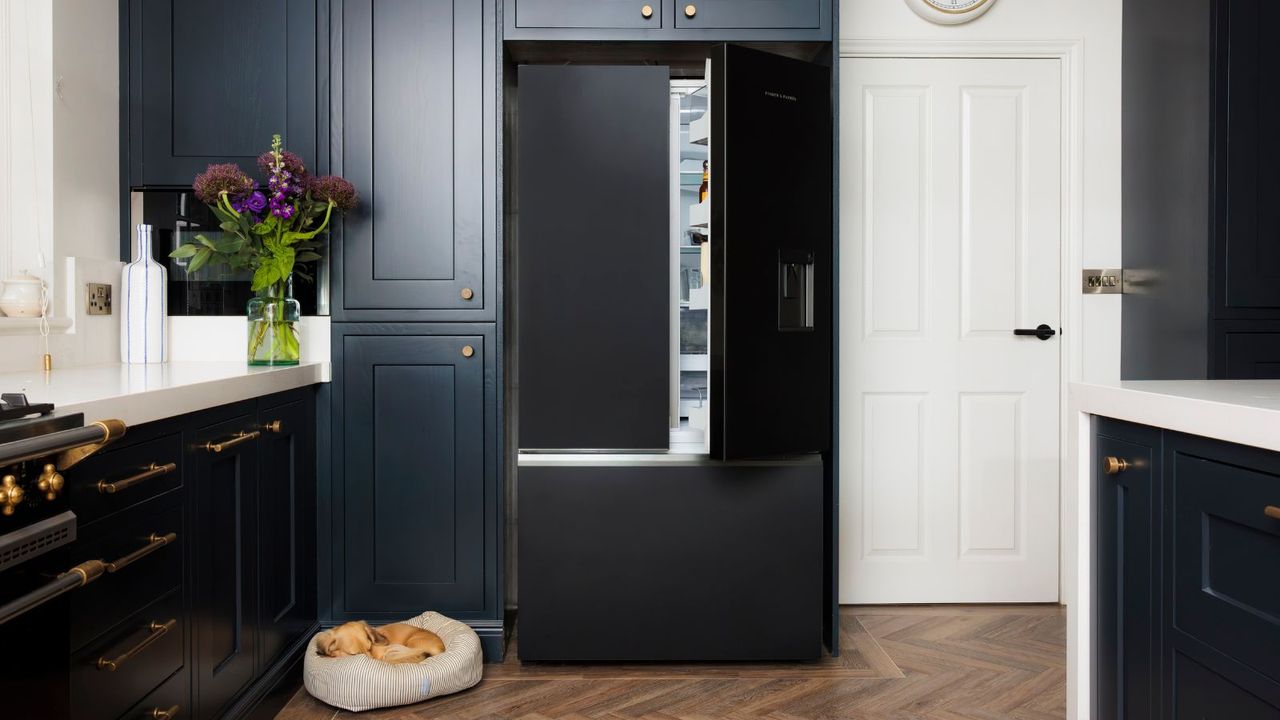

No matter how many outlets your house has, there never seems to be one close enough to where we need them most – it always feels like the builder was against us.
This is where the handy extension cord usually comes into play. These useful adaptors can be found in almost every home across America, and while they are perfect for quickly charging a phone when you do not want to move from the sofa, or helping you plug in a lamp in the perfect corner of your bedroom, there are several things electricians are warning we should never plug into an extension cord – under any circumstances.
These are the five home appliances you should never plug into an extension cord to keep you and your home safe – even if it goes against convenience.
Appliances you should never plug into an extension cord
No matter if you want to hide cords on kitchen counters or organize cables to keep your living space neat, you should never take the risk with these five items – whether it is aesthetic or not.
1. Washing machines and refrigerators
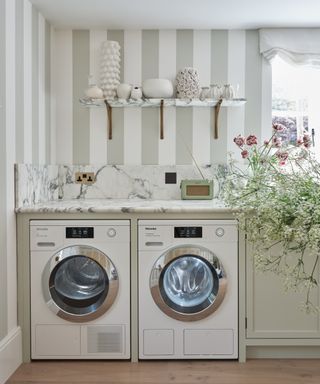
A good rule of thumb to follow is the bigger the item is, the less likely it is that it can be used with an extension cord. This means items such as washing machines and refrigerators, for instance, should always be plugged into a wall:
‘These should be on dedicated outlets that can be controlled by the circuit breakers in the main panel,’ suggests Adam Nelson, master electrician at Young Cardinal Electric. Extension cords don't have a circuit breaker, meaning that it is very easy for larger appliances to cause an overload, leading to a fire.
Plugging directly into the mains through a wall outlet might mean you can't arrange your kitchen perfectly right off the bat, but you will still have a home to decorate by avoiding a fire.
2. Stoves
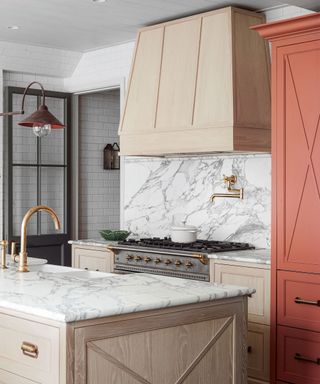
‘It’s best to not ever plug any kitchen appliance in using an extension cord, including items like stoves,’ urges Josh Rudin, owner at ASAP Restoration. These heavy-hitting home appliances need a lot more power than your typical extension cord can supply, leading the cord to overload and potentially start an otherwise avoidable fire. ‘This isn’t what extension cords are for, and it isn’t how major household appliances are intended to operate either.’
If you want to relocate your stove, it is much better to wait until you can remodel a kitchen, and have a professional electrician adjust the wiring for you.
3. Space heaters
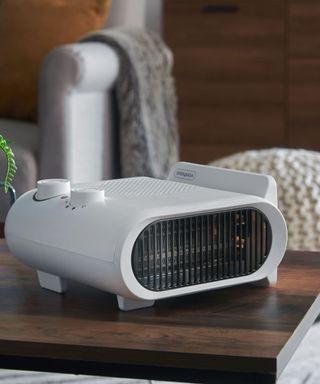
Space heaters, by their very nature, need to be mobile to help you heat rooms as required. However, you should never try to extend this reach by plugging them into an extension cord, Adam Nelson, master electrician warns:
‘A household appliance we feel is very important to plug directly into an outlet are space heaters. These appliances are natural fire risk as it is, and should always be plugged into direct outlets, again securing them to circuit breakers in your main panel to avoid overloads.’
4. Other extension cords
Although the whole point of an extension cord is to extend the distance between the outlet and your plugged-in device, you should never risk plugging multiple cords into one another just to increase the distance, warns Al Fouz, leading electrician at Abaco.
Also called ‘daisy-chaining', this practice drastically increases the risk of an overload by exceeding the maximum wattage rating, possibly leading to a fire. Instead, opt for a longer cord where absolutely necessary, or admit defeat and move closer to the outlet.
It might be inconvenient, and far from the most aesthetic organizing trick, but you will be thankful you did.
5. Small kitchen appliances
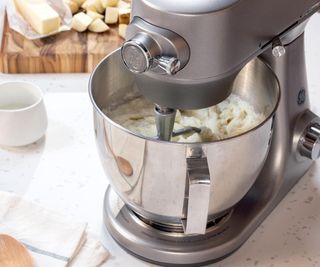
It is not just your larger, permanent kitchen appliances that you should keep away from extension cords. Your smaller appliances, such as air fryers, stand mixers, and microwaves, should be plugged directly into the wall too.
Despite their small size, these powerful cooking appliances still require significant wattage to cook food thoroughly, often making them too powerful for an extension cord. Even if you are not using the appliance for long, it is far safer to plug it directly into a wall – even in a small kitchen when space might be tight and it might be inconvenient to do so.
If you are worried about counter space, consider putting appliances such as toasters and mixers in cabinets to free up outlets for the appliances you need at the moment.
FAQs
Are extension cords dangerous?
Extension cords are not generally dangerous as long as they are used correctly and maintained to check for signs of wear and tear. Extension cords only become dangerous if they are used to plug in too large an appliance, use it for too long a time, or use it when the cord is damaged in any way.
Why does my extension cord spark when I plug something in?
If your extension cord sparks when you plug something in, it is likely because the current is jumping from the outlet to the plug as you plug it in. If this concerns you, you can turn the extension cord off before you plug something in and then turn it on when the plug is in situ. You can also have the cord serviced if you want to ensure there is no damage causing a spark.
All of this is not to say you should never use an extension cord for anything in your home – they are ideal for charging small items such as laptops and phones or moving a lamp to the perfect location.
Sign up to the Homes & Gardens newsletter
Design expertise in your inbox – from inspiring decorating ideas and beautiful celebrity homes to practical gardening advice and shopping round-ups.

Chiana has been at Homes & Gardens for two years and is our resident 'queen' of non-toxic living. She spends most of her time producing content for the Solved section of the website, helping readers get the most out of their homes through clever decluttering, cleaning, and tidying tips. She was named one of Fixr's top home improvement journalists in 2024.
-
 Claudia Schiffer uses a credenza to create a '70s-inspired statement in her entryway – experts say it has surprising wellness benefits
Claudia Schiffer uses a credenza to create a '70s-inspired statement in her entryway – experts say it has surprising wellness benefitsThe model's credenza taps into the low-slung furniture trend, evoking a calming ambiance with a retro spirit that experts love
By Hannah Ziegler Published
-
 What does it mean to 'harden off a plant'? Experts explain this gardening term – and why it's important
What does it mean to 'harden off a plant'? Experts explain this gardening term – and why it's importantIf you've started seeds indoors, 'hardening off' is a key step when moving them outside
By Holly Crossley Published